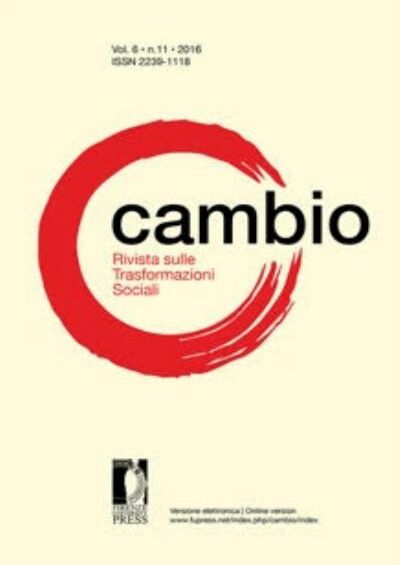On the occasion of the centenary of his demise, Cambio intends to promote a Call on two distinct thematic lines, both with an explicit interdisciplinary orientation:
- A reinterpretation of Weber’s work from a contemporary sensibility allowing to enhance unexplored aspects or overlooked themes of Weber’s vast corpus. Besides, the substantial conclusion of the critical edition (Max Weber Gesamtausgabe) profoundly reframed the profile of Weberian reflection, returning to the state of unedited materials most of the texts of Economy and Society, thus opening the possibility of their critical revision.
- An investigation of themes of our current form of social life upon which to measure “what is still alive” of Weber’s thought. In this perspective Weber represents a benchmark, a resource for the understanding of the present, but also something that has to be, inevitably, overstepped.
The monographic section will host both theoretical essays and essays from empirical research experiences in which Weberian analytical categories have been revisited and questioned.
The Editorial Board is also interested in evaluating contributions for other sections of the Journal:
- Open Essays and Researches: the section is aimed at scientific contributions, either theoretical or empirical, submitted to the journal not related to the active Calls for Papers.
- Eliasian Themes: With this section, Cambio aims to promote the understanding of Norbert Elias’ work and the critical discussion of the concepts of processual sociology.
Reviews and profiles of books, essays and scientific events are also appreciated. The initiative is addressed to researchers in all social science areas, with no particular emphasis on specific methodological or theoretical approaches.
Texts must be unpublished and not submitted at the same time to other Journals. Contributions intended for the monographic section, have to be sent by the 04/10/20.
Please, submit your paper directly on our website:
https://oaj.fupress.net/index.php/cambio
Decisions on the publication of articles are carried out by the Editorial Board, on the basis of the advice collected through double-blind peer review. The submitted texts have to be between 30,000 and 50,000 characters and provided with: a) an English abstracts, with the major points of the article; b) some keywords (from 3 to 6) to recall the main topics.

